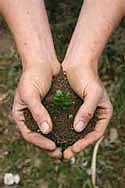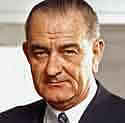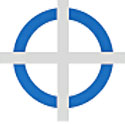 St Mary's Church, Dymock
St Mary's Church, Dymock
| Admin | |||
| . | Home | Contents | |
| H&S Policy | People Safety | Grave Yard | |
The Church & The World
Faith & Care
Faith & Care
Things Past
People & Features
People & Features
Seasons and Festivals

As well as the Seasons and Major Festivals which help us worship God, the church celebrates several 'Special Days' throughout the year to remember, honour and support each other and our work in God's world. Celebration of the "Special Days" is usually optional, Christians chose which they want to remember, not all churches celebrate all these days....
'Special Days'
| January | Plough Sunday | July | Sea Sunday |
| February | Education Sunday | August | |
| March | Mothering Sunday | September | Racial Justice Sunday Harvest Festival |
| April | Rogation | October | Disability Sunday Animal Welfare Sunday Hospital Sunday |
| May | Christian Aid Week | November | All Saints Day, All Souls Day Remembrance Sunday |
| June | Fathers Day Reader Sunday |
December | Nine Lessons and Carols Christingle Service |

In the year 470AD, there had been a number of natural disasters which had caused much suffering among the population in that area of France. Their Archbishop at the time (Archbishop Mamertus) proclaimed a Fast and ordered that prayers be said as the population processed around their fields, asking as they went for God's protection and blessing on the crops that were just beginning to sprout. Society in those days was mainly agricultural and highly vulnerable to the uncertainties of nature, so the custom quickly spread across Europe and Britain.
The Sunday before the three Rogation Days came to be considered a part of 'Rogationtide' and known as Rogation Sunday, as the Gospel formerly appointed for that day was John chapter 16, which in verse 22 includes Jesus telling the Apostles, 'If you ask (God) for anything in my name, he will give it to you'.
There are now at least two customs associated with Rogationtide....
1 Blessing the Fields:

Some churches, especially those in a rural area, still process round the fields whilst others at least move the congregation out from the church into the churchyard and look towards the fields or else process round the outside of the building whilst asking for God's blessing on the fields, those who work in them, and the crop they will (we hope) produce.
(Return to Top)
It could be argued that this is bordering on superstition, but it can also be argued that it acknowledges God's presence, his creation, and ultimately our dependence on him in everything.
2 Beating the Bounds: Before the introduction of Social Security, people who found themselves without support had to return to the parish where they were born in order to seek help, even if they had moved away to the other end of the country (sometimes called being 'On the Parish'), so it was important that people knew where the parish boundaries were so they could tell who was entitled to receive money from them or not. It was not unknown for scoundrels sometimes to move the boundary markers so that one parish would have to pay for someone from a neighbouring parish.
Once a year, usually at Rogationtide following the custom from Vienne of processing around the fields, the priest and people from the parish would process around the parish boundaries, stopping every now and then to pray and beat (hit) the boundary markers with sticks to impress on people's minds where the boundaries actually ran so they could avoid such fiddles. In was common for the procession to include the church choir and for choirboys or village boys to be beaten with the sticks as well as the boundary markers, or else to be 'bumped' or held upside down over the boundary so they wouldn't forget where the boundaries were. The traditional practice of 'Beating the Bounds' is still carried out in some places even today, but for ceremonial reasons without beating the boys!
(Return to Top)

Fathers Day was introduced in the USA as a balance to Mothers Day. The idea of a day for fathers was suggested by several people at different times but formal recognition is generally attributed to Sonora Louise Smart Dodd of Spokane, Washington who, in 1909, was listening to a sermon in her church on Mothers Day. Because her mother had died, she couldn't join in the celebrations so she felt that fathers should be honoured too, especially fathers like hers who had to show special devotion to the family as a single parent. She urged the Spokane Ministerial Association to adopt the celebration and it was observed on the third Sunday in June 1910, the month of her father's birthday.

(Return to top)
Readers were created as 'Lectors' in the time of Elizabeth I when there were not enough priests of the new Protestant faith to be allocated to each parish ('Lector' comes from the Latin for 'Read'). When there was no priest to take a Service in a church, suitable men of sober behaviour and sufficient learning were licensed to read the Service of Morning Prayer or Evening Prayer from the new Prayer Book. Originally they were not allowed to preach, merely to read the Service, and they were not allowed into the Sanctuary (the area around the altar table) so they had to leave the collection plate on the floor at the entrance to the Sanctuary. The Office of Lector had died out by the time of Oliver Cromwell (17th century) but was resurrected in 1866 when the Bishop of Gloucester licensed the first modern 'Lay Reader'. At first just men were allowed, but women were admitted in 1968 and the ratio of men to women is now about equal. Gradually over time, the title has changed to just 'Reader' and the duties of a Reader have been expanded so they're now allowed to lead a whole non-Communion Service and do much as a priest can (including entering the Sanctuary!), except they may not 'preside' at Holy Communion (ie: bless the bread and wine), conduct marriages and baptisms, absolve sins, or give a blessing.
(Return to Top)

In some dioceses (such as Gloucester) the Reader is licensed to take funerals, and they often assist the priest at Holy Communion, Baptism and Marriage Services.
A Reader is not the 'vicar's little helper' but is a separate ministry (calling), although most Readers operate under the authority of a priest. You may see a Reader helping the priest in their role, leading a church Service, or visiting in the Parish, or leading a House/Study Group, but you will also see a Reader doing those things on their own. Readers are trained in Theology and Ministry, often on the same course as priests, although they are not ordained (set-apart) but remain part of the laity, supporting themselves through full-time employment.
Consequently, Readers can be found not just in parish churches but as Chaplains in prisons (technically 'Assistant Chaplains'), and old folks' homes, schools, etc. There are now as many active Readers in the Church of England as there are priests (over 10,000), and there may even be more Readers!
(Return to top)